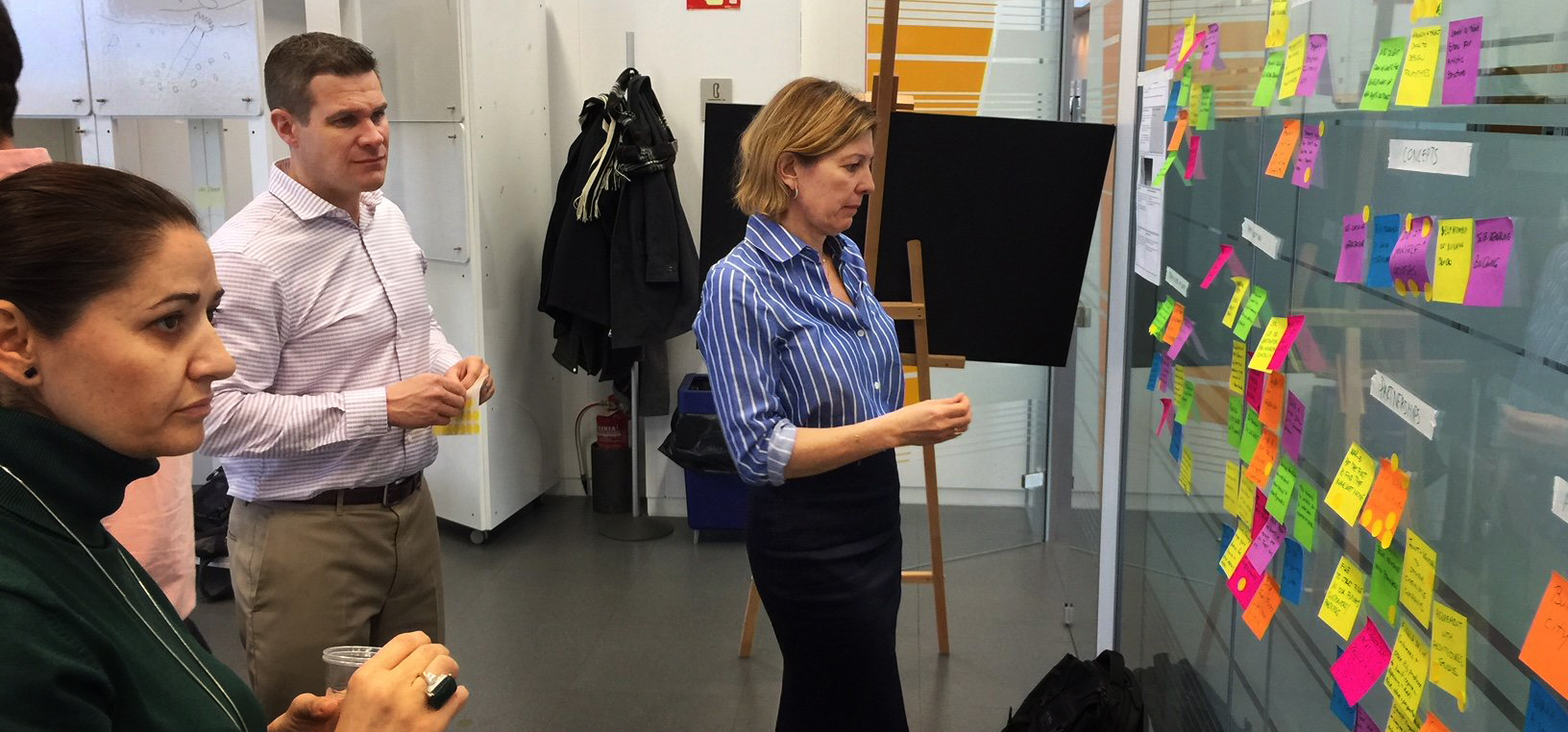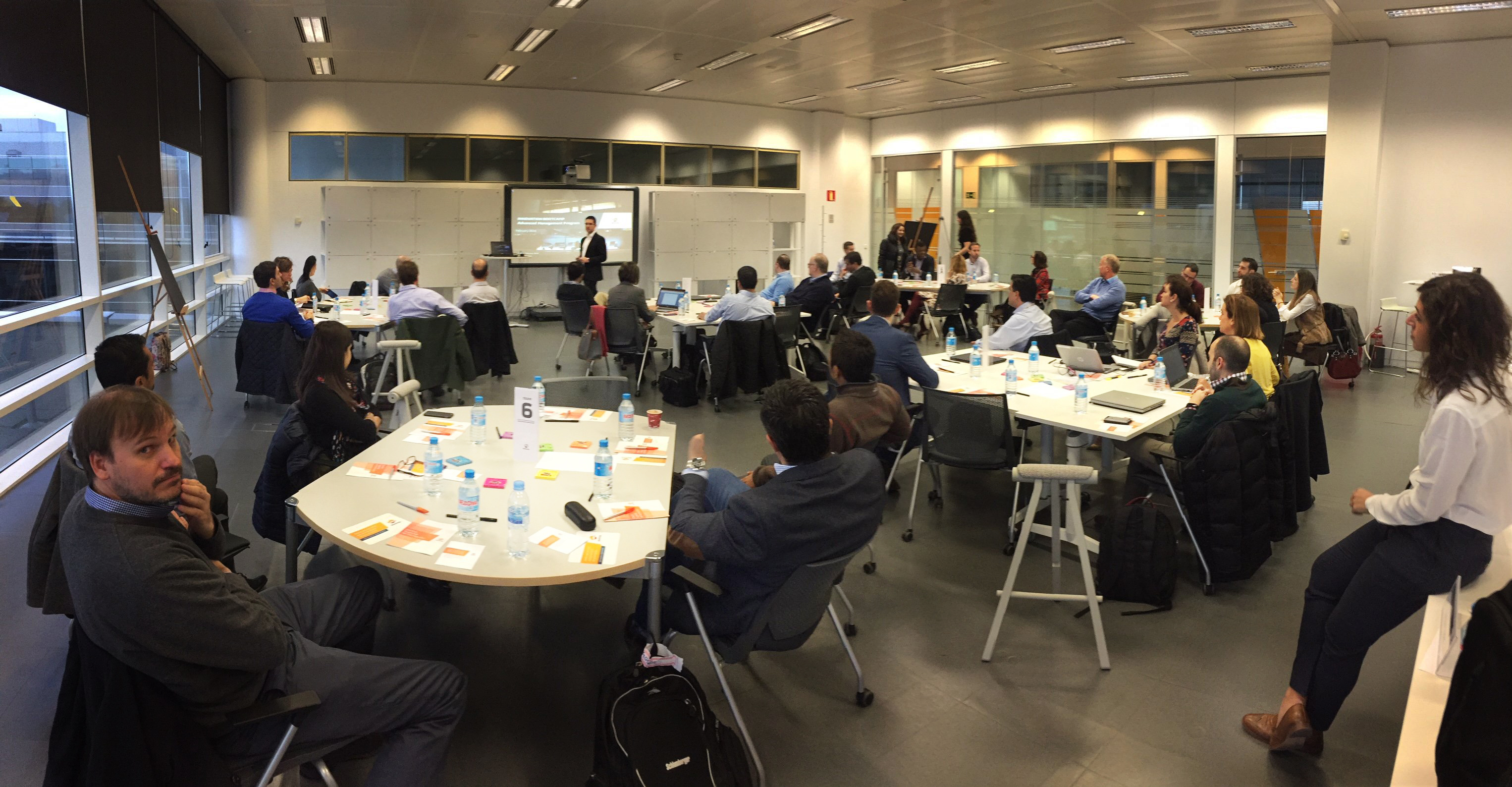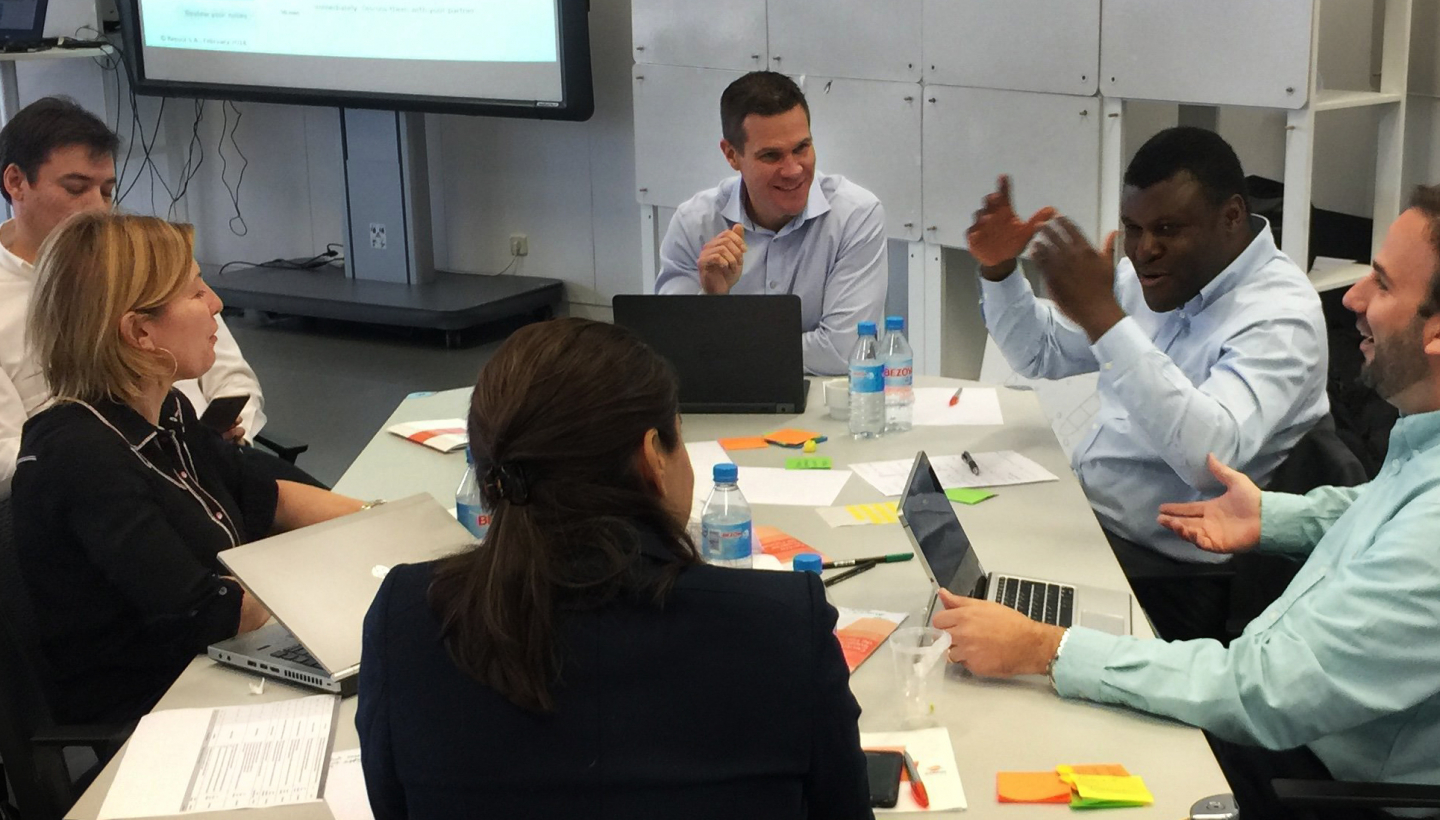There are moments in corporate life when companies must face the incessant pace of technological change head on and simultaneous to the need for permanent innovation. At such moments companies admit the need for the kind of innovative training that requires an recognized and tanglible result.
But training in innovation is not only about subject-knowledge objectives , rather it is also about change at a fundamentally structural level, at the macro company level, as well as at the micro, affecting individual workers and their way of thinking and reacting in the workplace.
Innovation as a concept is not a temporary or partial move; it is not merely a zeitgeist term; workers these days need to be open to the concept of change as a permanent fixture of their work life and ready to incorporate the ever-shifting nature of challenges they meet in the day to day as part of a new workplace dynamic.
For this reason, large and successful companies are increasingly availing of the power of consultancies in innovation to fulfill the role of training in their employees making them facilitators in innovation.

This is not an easy job for a multinational company. In the case of national energy sector, the company involved in the project described below is one of the biggest: over 27,000 employees in at least 40 countries. Innovation for a company of this scale is quite simply a fundamental part of company strategy that underpins huge transnational projects in which technological development is constant and where the competitive edge of the company depends on an optimum effort in all its processes of production.
That is why we at Opinno were contacted by the oil company when it needed specialist training in innovation as a long-term commitment for 15 to 20 employees a year. Furthermore, we were asked to provide a guarantee that training would not only yield results but also certification on completion.
Our team was charged with training the trainers themselves – a group of key individuals in the company who would transmit the tools and methodologies necessary to meet for the challenge of innovation in projects involving larger groups of workers: they would pass on these skills so that these would filter down and maximize results for the company.

But how does it become clear that these processes of innovation have been effective?
We devised a system of accreditation to ensure that the effects of innovation could be felt tanglibly across the organization by those facilitating their disemination.
With our sights set firmly on the needs and objectives of the company itself we developed a three-fold methodology based on both hard and soft skills: technical and interpersonal competencies, quantifiable in each of the chosen facilitators through the means of individualized monitoring. This included the active tutoring of individuals as well as shadowing in order to observe particular aspects of their performance for certification.
Awarding the qualification to the facilitators is an essential element in their training. The accreditation is awarded on the basis of tangible evidence of the training criteria designed by Opinno in employees’ practice.

These criteria were defined at the end of a process of analysis focused on the vision of the company in question: we exercised a needs analysis through a process of Creative Problem Solving to identify the company’s challenges and to define and priotorize what should be the objectives for training.
Once those realities had been identified we were able to hone in on what we call the key challenges: the most relevant in terms of the kind of impact their resolution would afford the company.
Finally, with two to three specific challenges in mind, we guided the qualification process to its conclusion; this stage was based on a series of further criteria agreed on by all the training participants involved. As a result trainees are equipped with the kind of skills particular to their multifarious working context as part of a large multinational oil company. Plus, they come away with a qualification to demonstrate such skills are proven work competencies: an assurance from which both the worker and the company benefit.



